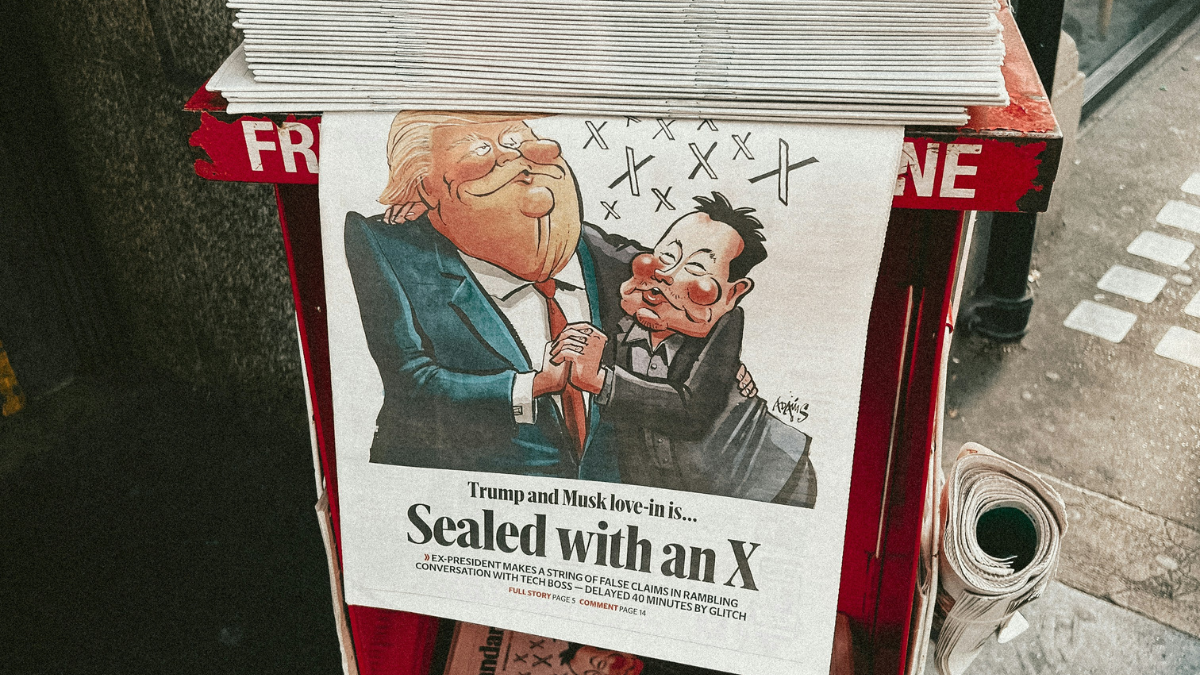Both White House senior advisor and CEO of firms immediately impacted by the tariff agendas, Musk’s dual affiliation affirms the intricacy of the tightrope walk between his advisory capacities and business agendas in the context of an increasing hazardous international trading landscape.
Musk’s zero-tariff vision
Addressing a political conference in Florence via remote video link with Italy’s Deputy Prime Minister Matteo Salvini on April 5, 2025, Musk described his vision of unbridled freedom of trade. “Ultimately, I’d like it to be the case that Europe and the United States, in my opinion, would go to a world of zero tariffs, essentially creating a free trade zone for North America and Europe,” Musk explained during the interview. The stance is diametrically opposite from the newly unveiled reciprocal tariff proposal by the Trump administration.
Musk didn’t halt there at the products of trade. He proposed increased mobility from America to Europe, stating, “If people want to work in Europe or want to work in North America, they should be allowed to do it in my view,” and admitting he had consulted to President Trump along the same.
Trump’s ambitious tariff plan
President Trump recently introduced an aggressive tariff policy imposing a minimum of 10% in duty, and more tariffs on other nations that have higher trade deficits against America, with the exception of Russia. The policy especially includes a 20% reciprocal tariff on exports by the European Union, specially aimed at Italy as a result of its humongous trade surplus with America.
The actions also touch on other key trading partners, such as a 25% tariff on imports from Canada and Mexico, a 10% tariff on Canadian energy resources, and another 10% tariff on imports from China. Many of these tariffs came into force in early February 2025, although others, such as Mexico’s, were briefly kept in abeyance to provide room for talks.
Musk’s call for zero tariffs arrives as his own businesses are taking huge losses at the expense of the tariff war. Tesla shares fell 14% over two days after Wednesday’s tariff declaration by Trump, adding to a huge loss of Musk’s personal wealth, which has fallen more than $40 billion since hitting over $400 billion in late December.
While Tesla has cars manufactured in the U.S., Musk acknowledged having a weak point, admitting, “The tariff impact on Tesla is still significant” from its dependence on foreign supply lines for raw material. Industry insiders were even direr in prognosis, with Wedbush Securities’ Dan Ives calling new tariffs an “economic Armageddon” on the auto market, including for Tesla.
Retaliation hits Musk’s enterprises
Retaliation from impacted nations has been aimed directly at Musk’s businesses. In Canada, Ontario Premier Doug Ford openly canceled a $68 million contract with SpaceX’s Starlink satellite internet connectivity, which was meant to provide rural and remote communities.
“From today forward until U.S. tariffs are removed, Ontario is cutting American companies out of provincial contracts,” Ford said, stating that the province will not do business with anyone who wishes to “wipe our economy out.” Musk’s reaction to the cancellation was typical in its brevity: “Oh well.”
The adviser’s dilemma
Musk’s public position on tariffs also underscores the difficult dual role he plays as White House adviser and CEO of companies deeply entrenched in global supply chains. Although he has been a supporter of many of Trump’s other policies and is chairman of the Department of Government Efficiency (DOGE), his notable absence from the Rose Garden ceremony during which Trump announced the new tariffs indicates possible tension regarding trade policy.
Musk’s latest shots at Trump administration officials also include withering shots at Peter Navarro, the director of trade and manufacturing policy, calling his having a PhD in Econ from Harvard “a bad thing, not a good thing.”
While world markets react to mounting trade tensions, Musk’s public departure from administration policy through such an atypical means shows how fine-tuned the act must be of business leaders laboring in advising capacities in a period of economic nationalism.
Read more: This is the first economic fallout from Trump’s tariffs with one major company laying off hundreds of U.S. employees
Read more: Canada is filling U.S. highways with billboards in trade war against Trump – These are the government’s messages over tariffs

